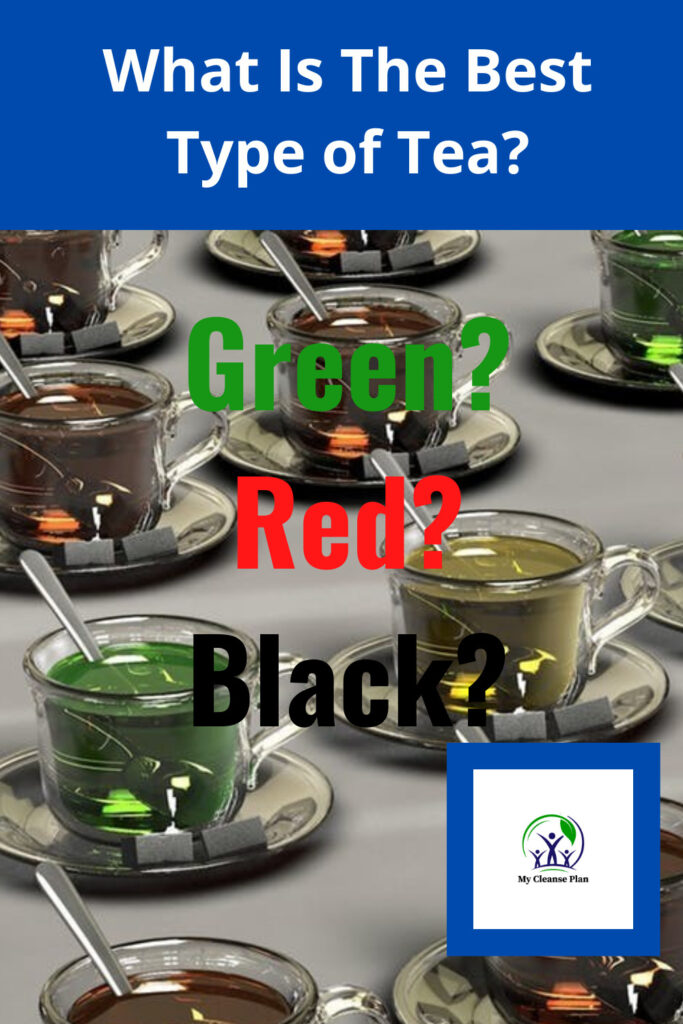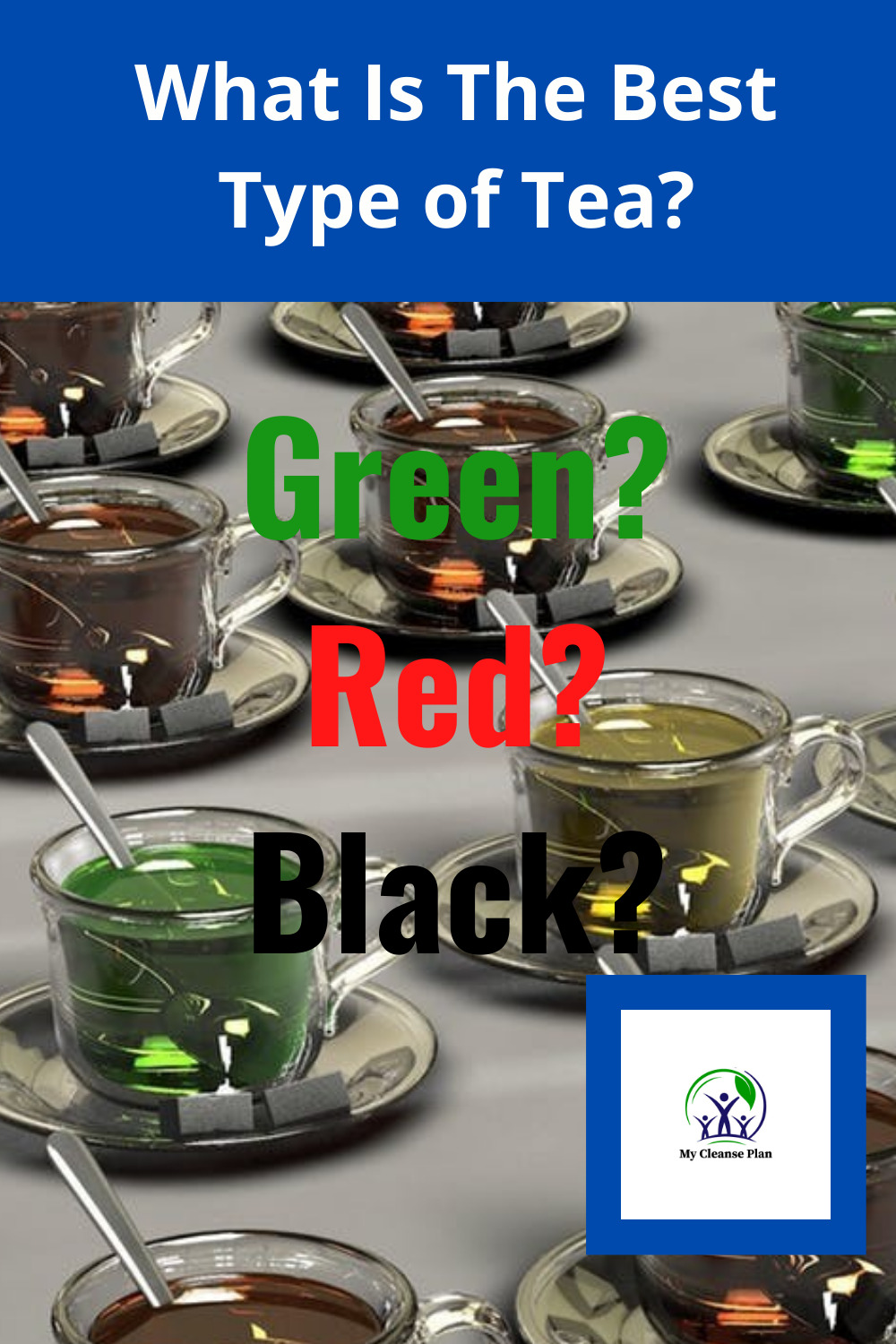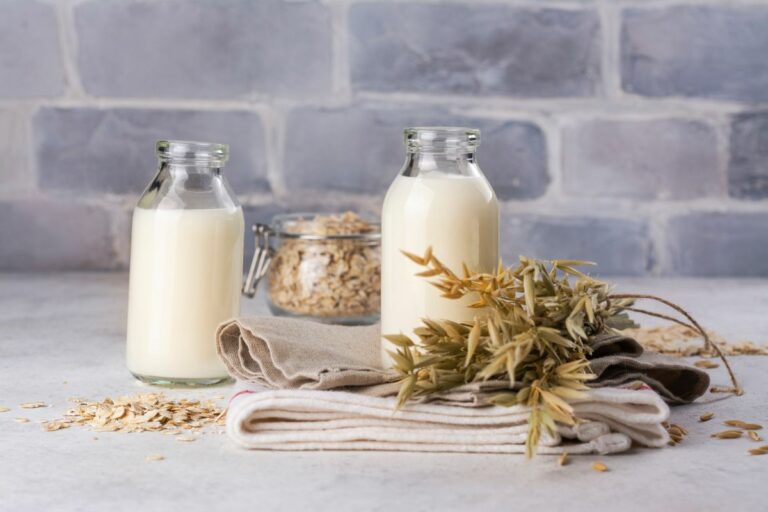What Is The Best Type of Tea – Red, Green Or Black
What Is The Best Type of Tea
Tea is a very complex and intricate beverage with a wide array of cultivation regions, pedigrees, flavors, health benefits, and production methods.
There are literally hundreds and thousands of teas available in the market. However, with such a wide variety, it can be a little hard to know which one is the best.
Different types of teas have originated from the same plant i.e., Camellia Sinensis, but there is an overlap in their properties, flavor, and benefits.
Here we have put together a comprehensive guide for you where we are going to discuss red tea, green tea, and black tea in detail to develop your basic understanding of different types of teas and to conclude which one is better.
Read on further to learn about these three teas so you can pick the one that best fits your liking and taste buds.
Red Tea
What Is Red Tea?
Red tea (also known as Rooibos tea or red bush tea) is made from Rooibos, which is a red-colored bush usually cultivated in South Africa. It is famous for its natural red color and sweet flavor.
Also, this variety of tea doesn’t come from Camellia Sinensis. Instead, it comes from a completely different plant that has needle or spine-like leaves. The farmers cut and process the plant, which the buyers can brew into tea and use.
Production and Processing
Rooibos grows naturally in the mountainous region of South Africa called Cederberg. The farmers collect the leaves and produce reddish-brown colored tea through oxidation (tea processing).
Though unoxidized green Rooibos is also available it tastes more malty and grassy, unlike red Rooibos, which are sweet and fragrant.
Chemical Composition
Red tea has a high amount of vitamin C i.e., ascorbic acid in it (which stays even after brewing). Moreover, it contains caffeine, a low quantity of tannins, flavonoids, flavones, polyphenols, nothofagin, benzoin, and cinnamic acids.
Health Benefits
Some health benefits of red tea are:
- Low Caffeine
Rooibos tea has a small amount of caffeine as compared to other types of teas, so it is safe for consumption by pregnant ladies, children, and people who can only take a limited amount of caffeinated beverages.
https://gigasecurehome.com/blink-running-man-icon
- Contains Antioxidants
Red tea contains different kinds of antioxidants, such as aspalathin. These antioxidants are very important for good health as they can prevent the formation of free radicals in the body and also reduce damage to cells and tissues.
- Strengthen Heart
According to different research, red tea can provide many cardiovascular benefits as well. It can reduce bad cholesterol levels, increase good cholesterol levels, prevent ACE inhibitors from raising blood pressure, and reduce the overall damage to heart muscles.
- Fights Obesity
It is a calorie-free beverage, so it is an ideal choice for people who are desperately trying to reduce weight. Red tea can also fight obesity by increasing leptin in the body, and by preventing the formation of new fat cells.
- Manage Diabetes
People with debates can regularly drink this tea to keep their blood sugar level in control. The antioxidant aspalathin contains anti-diabetic properties. It can reduce the chances of atherosclerosis and vascular inflammation and prevent you from developing diabetes-linked heart problems.
- Fights Cancer
Studies have shown that red tea can help in the reduction of cancer cells inside the body. It can also reduce the number and size of cancer cells and cancer-causing lesions.
- Improves Skin
Red tea can also enhance the appearance of your skin by preventing wrinkles and fine lines.
- Provides Healthy Minerals
This tea is an excellent source of magnesium (good for the improvement of body health), zinc (for the development of a healthy immune system), potassium (good for healthy functioning of body organs), and iron (to provide more oxygen to the cells).
Possible Side Effects
In general, it is quite safe to consume red tea. However, some side effects also exist, but they are very rare. Some potential side effects of red tea are:
- Consuming red tea in large amounts can increase the production of liver enzymes, which may lead to chronic liver disease.
- Specific components of this tea can cause the production of female sex hormones i.e., estrogen.
- People who are going through hormone-sensitive diseases such as cancer must avoid drinking this tea on a regular basis.
https://gigasecurehome.com/ring-doorbell-cant-hear-visitor
Green Tea
What Is Green Tea?
Green tea is made from Camellia Sinensis buds and leaves, which are used to produce black tea. The only difference here is that green tea leaves do not undergo the process of oxidation or withering (tea processing methods).
This tea is native to China, but there are many countries in Asia where it is now being produced, manufactured, and distributed among buyers.
Production and Processing
Green tea (also called non-fermented tea) is produced and processed during the spring season in Japan, India, and China. The typical method of processing green tea includes heating, rolling, and drying.
At times the withering method is also used but not as frequently as others. The farmers pick the leaves, and then they are heated in sunlight for two hours (to prevent oxidation and maintain freshness). Then the leaves are rolled into different shapes (curly, balled, twisted, or flat) and then dried again.
Chemical Composition
Some fundamental constituents of green tea are polyphenols (epigallocatechin gallate, epicatechins, flavones, and epicatechin gallate), flavonoids (myricetin, kaempferol, and quercetin), caffeine, theophylline, and theanine.
Possible Health Benefits
Some health benefits of green tea are:
- Prevents Cancer
The polyphenols found in green tea have been shown to decrease the growth of tumors in patients with cancer. Polyphenols can also kill cancerous cells and prevent them from developing again.
By far, green tea has shown positive impacts on different types of cancers such as breast, lung, skin, ovarian, prostate, and bladder.
- Heart Health
According to several studies, people who regularly drink green tea have a lower risk of dying from cardiovascular diseases. The polyphenolic compounds and catechins in green tea have a protective effect on the heart and thus prevent heart diseases and stroke.
- Lower the Risk of Obesity
On a short-term basis, green tea can boost your metabolic rate and help you shed extra weight faster. Green tea can also reduce body fat, especially the one present in the abdominal region.
- Lower Risk of Type 2 Diabetes
Green tea can reduce and maintain blood sugar levels and improve insulin sensitivity in the body, thus reducing the risk of developing type-2 diabetes.
- Improves Dental Health
There are various biological effects of catechins found in green tea. These catechins can kill bacteria and stop viruses from infecting your body.
Consumption of green tea can inhibit the progression and regrowth of bacteria, such as streptococcus mutants (harmful bacteria in mouth flora that leads to the formation of plaque and tooth decay).
- Improves Brain Function
Caffeine present in green tea works as a stimulant by blocking inhibitory neurotransmitters (adenosine) and by increasing the density of neurotransmitters (norepinephrine and dopamine). This leads to better brain functioning, memory, mood, reaction time, and vigilance.
Possible Side Effects
When ingested in moderate amounts, green tea is safe for most adults. Some rare side effects of green tea are:
- In some people, green tea may cause constipation or stomach upset.
- In rare cases, people may develop liver and kidney problems.
- Some people may experience headaches, dizziness, sleep problems, nervousness, and irritability.
- It can also cause irregular heartbeat, tremors, convulsions, diarrhea, and vomiting.
- It can also reduce the absorption of iron in the body.
- Severe toxicity can occur even at lower doses.
- Drinking regular green tea can make anemia worse.
- Caffeine in green tea increases the chances of bleeding and can increase pressure inside the eyes, leading to glaucoma.
Black Tea
What Is Black Tea?
In the West, black tea is the most famous type of tea of all due to its long shelf life and bold/strong flavor. Like other non-herbal teas like green tea, black tea is also produced from Camellia Sinensis.
It is much more oxidized as compared to white or green teas. While other similar types of teas lose their aroma and taste in a year, black tea has the ability to retain its flavor for many, many years.
Production and Processing
Black tea is either harvested by hand or through machines (also known as the plucking method). After it is collected, it undergoes heavy weathering (for the reduction of moisture) in heavy troughs.
Later, it is rolled by hand or machine to release its essential oils. These essential oils help in oxidation, which gives black tea its unique flavor, aroma, and color. To halt the oxidation, the tea is baked via a high-heat process and then dried and packed for shipping.
Chemical Composition
The chemical constituents of black tea include phenolic compounds or catechins (epigallocatechin, epigallocatechin gallate, epicatechin gallate, and epicatechin), proteins, amino acids, carbohydrates, fibers, minerals, pigments, lipids, theaflavins, flavonols, volatile compounds, and caffeine.
Health Benefits
Apart from water, black tea is the most consumed drink in the world. It is not just prominent due to its flavor but due to its numerous health benefits.
Some primary health benefits of black tea are:
- Antioxidant Properties
Black tea can remove free radicals from the body, which will ultimately lower the risk of developing chronic diseases. Polyphenols are the primary antioxidant found in black tea.
These polyphenols are beneficial to improve overall health conditions and prevent medical problems such as obesity and high cholesterol.
- Improves Immune System
The tannins found in black tea are not just there to give it a unique taste, but they can also fight bacteria and viruses inside the systems and prevent diseases such as influenza, hepatitis, and dysentery.
- Improves Digestion
Black tea has more amounts of tannins as compared to other types of teas. These tannins can give many digestive benefits if consumed daily. Black tea can soothe intestinal diseases, and gastric problems, facilitate easy digestion, and prevent diarrhea.
- Skin Health
Black tea is rich in vitamins (B2, C, and E), zinc, potassium, magnesium, tannins, and polyphenols. It can kill bacteria and viruses topically as well, thus preventing your skin from infections and pimples.
It can also reduce fine lines, wrinkles, and other signs of early aging. This gives an antioxidant boost to your skin and also provides protection against sunburn.
- Eye Health
Placing black tea bags under your eyes can help you get rid of dark circles and reduce puffiness due to lack of sleep.
- Bone and Connective Tissue Health
The phytochemicals present in black tea can make your bones and connective tissues strong if you consume them regularly.
- Improve Mental Focus
Black tea can also improve your mental concentration and focus due to the presence of caffeine in it. Unlike expensive energy drinks and coffee, black tea will not overstimulate your heart rate or produce other side effects.
- Boost Your Energy Level and Reduce Stress
The amino acids and theanine found in black tea help your body slow down after a hectic day at work so you can think better and be relaxed. It can also improve blood flow toward the brain and make you feel more energetic.
Possible Side Effects
Some side effects of black tea include:
- People can have difficulty in sleeping, anxiety attacks, and fast and rapid breathing.
- Sometimes, it can cause increased urination and give constant headaches.
- Black tea can also cause nausea, vomiting, tremors, restlessness, and nervousness.
- In rare cases, it can lead to psychological dependence.
Explore Also:
Creativehouseblog
Dietsheriff
Gigasecurehome
Final Thoughts
Drinking different types of teas can open up a world of aromas and flavors for you, which will not only please your senses, but you will also get many health-related benefits. Whether you like red tea, green tea, or black tea, you know that the fragrances, flavors, and advantages are limitless.
So we suggest that you try to experiment with all these different types of teas and not get stuck on just one variety. Always brew your tea for good five-ten minutes to bring out all the beneficial components and then enjoy the serenity that comes with it.
Please leave your comments and questions below and thank you for reading.
This article is for informational purposes only and is not intended to replace qualified medical personnel. If you have medical concerns, please speak to your doctor.
Here is a PIN you can share with your friends on Pinterest:













